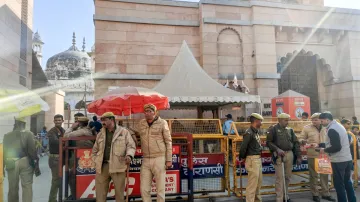The Supreme Court has linked the Gyanvapi Committee's plea challenging a High Court order on the maintainability of a temple restoration suit with other pending disputes related to the issue. This move comes amid heightened legal scrutiny surrounding the contentious temple restoration efforts.
Tagging with main case: Bench's decision
A bench comprising Chief Justice D Y Chandrachud and justices J B Pardiwala and Manoj Misra declared, "We will tag this with the main case," indicating the court's intention to address the matter alongside other related disputes.
High Court's dismissal of muslim side's petitions
The Allahabad High Court had previously dismissed a series of petitions filed by the Muslim side, contesting the maintainability of a civil suit seeking the restoration of a temple. Upholding the validity of the suit pending before a Varanasi court, the High Court ruled that only a court could determine the "religious character" of a disputed place.
Legal arguments against suit's validity
The Anjuman Intezamia Masjid Committee, responsible for the management of the Gyanvapi mosque, along with the Uttar Pradesh Sunni Central Waqf Board and other parties, contested the maintainability of the suit. They argued that the suit violated the Places of Worship (Special Provisions) Act, 1991.
Interpretation of the 1991 Act
The Places of Worship (Special Provisions) Act, 1991, prohibits altering the religious character of holy sites as they stood on India's independence day, with exceptions such as the Ram Janmabhoomi-Babri Masjid site. The high court's ruling determined that the suit filed before the district court was not barred by this legislation.
Also read | PM Modi holds midnight meeting to decide on BJP's Lok Sabha candidates
Latest India News
